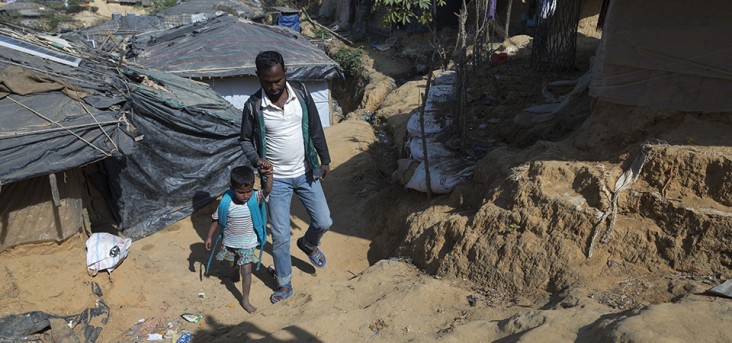Speeches Shim
First, the U.S. and Myanmar. My opinion: the relationship between our two countries is a very special one. America is the leader of the free world. We consider ourselves the foremost champion of the community of democracies. Myanmar is one of the world's youngest democracies. When their students and civil society activists took to the streets not so long ago now demanding freedom and democracy, quite frankly, this country inspired us all. It reminded us why democracy matters, why civil society matters. We stood with the activists in those historic days, and we've proudly supported this democracy ever since.
Because America and Myanmar have this special kinship -- this very special bond and friendship -- I believe that we owe it to each other to be open and honest. Just as we share progress and successes, I think as friends we should also be willing to share concerns, as well. Our close friendship compels us to express honest concerns regarding the crisis with the Rohingya, as well as other ethnic and religious minority groups that have suffered persecution. To be clear, America speaks out on matters of democracy and human rights not because we have all the answers, but because through our history perhaps we have made all the mistakes.
From Bangladesh, obviously, we've come here to Burma. Had a good meeting, not just with the State Counsellor this morning, but with some of the officials who are involved in development in general and, in particular, the challenges facing Rakhine. And those were, I thought, constructive. We'll be continuing on in our conversations. I'm largely here, both in Bangladesh and Burma, to listen, to learn, to get direct input, to try to put together thoughts and observation and analysis for the Secretary of State so that it can help him as he formulates policy, and thinks through America's role.
We had the chance to talk about important issues, obviously development issues, our bread and butter, but also ways that we can work towards confidence building of all the communities so that we can help with the safe, voluntary return of the Rohingya from Bangladesh, and create conditions that allow for that safe, voluntary return. It was a good discussion. It was frank and open, and we look forward to following up.
The United States and Bangladesh share a long history of partnership and cooperation and friendship. USAID has particularly deep roots in this country; in fact, over the last couple of days, several Bangladeshis with whom I've spoken have told me that they can recall the days some decades ago when they were receiving food aid with the USAID logo on it. Things have changed a little bit since then as Bangladesh has risen rapidly, now graduating from low-income status, something that is indeed to be celebrated. There is much to do, of course, and we will continue to work closely together, our governments, on a number of fronts. From global health to food security, from economic development to democratic governance, we are working together on so many fronts.
On Wednesday, U.S. Agency for International Development (USAID) Administrator Mark Green met with M.D. Shahidul Haque, Foreign Secretary at the Ministry of Foreign Affairs of the People's Republic of Bangladesh in Dhaka. Administrator Green thanked the Government of Bangladesh for generously hosting and assisting nearly 700,000 Rohingya refugees who have fled violence and persecution in Burma since August 2017, and underscored the U.S. commitment to the humanitarian response to the crisis.


Comment
Make a general inquiry or suggest an improvement.